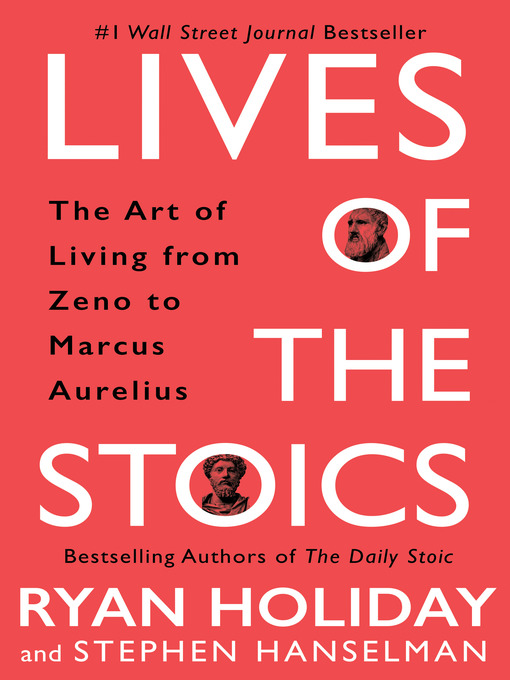
Lives of the Stoics
The Art of Living from Zeno to Marcus Aurelius
- اطلاعات
- نقد و بررسی
- دیدگاه کاربران
نقد و بررسی

Starred review from July 13, 2020
Holiday and Hanselman (coauthors of The Daily Stoic) explain in this stellar work the implications of Stoic dedications to truth, wisdom, resilience, and character. The authors present the work as a series of biographies of philosophers and ground each of the 26 profiles in the virtues of courage, temperance, justice, and wisdom that Stoics believes necessary to living a happy life. They distinguish “pen and ink philosophers” (more concerned with writing than living) from the Stoics, whose central tenet is summed up best by Marcus Aurelius’s: “Do the right thing. The rest doesn’t matter.” Including profiles of Stoics who were boxers, slaves, failed merchants, Roman senators, and occasionally “iron” women, each chapter provides a brief historical context before exploring the challenges of seeking a humble life in the Stoic fashion. Rather than offering prescriptive practices, the authors believe one can “learn more from the Stoics’ lived experiences (their works) than we can from their philosophical writings (their words)”: Cynic philosopher Crates of Thebes taught Zeno to learn from humiliation; Cleanthes of Assos, a middle-aged water boy, preached stoicism at night in the streets; Chrysippius, a long-distance runner, stressed the value of meritocracy over the misjudgments of social position. This illuminating collection of biographies makes great use of Stoic wisdom to demonstrate the tradition’s values for any reader interested in ancient philosophy.

July 15, 2020
An introductory guide to the luminaries of Greco-Roman ethical philosophy--and their checkered histories. Stoicism is famously prescriptive: Marcus Aurelius' Meditations is cherished for its aphoristic guidance on virtue and leadership, and Epictetus' best-known work, Encheiridion, loosely translates to "handbook." But Holiday and Hanselman, founders of the website the Daily Stoic, avoid a strict how-to approach, instead structuring the book as chronologically arranged pocket biographies of Stoic figures, from Zeno, a merchant who founded the school in Athens in the fourth century B.C.E., to Aurelius, who applied its tenets of calm resilience as Roman emperor in the second century C.E. The approach means there are many filler chapters on lesser-known thinkers like Panaetius, Porcia Cato (a rare woman Stoic), and Thrasea. (Some seem extraneous. The authors have little to say about Diotimus, who wrote some libelous letters. Bad form, but what of it?) The upside of their approach is that it thoughtfully complicates Stoicism. Rather than emphasizing Spock-like, unemotional rigor (as pop culture often does), the authors reveal how the philosophy often debated its identity and how many of the leaders fell short of its ideals. Cicero, for instance, gained fame as a statesman but ran aground thanks to his reputation for self-aggrandizement; Seneca's seriousness gave him the thankless task of serving as counsel to Nero, who used him as cover for his own despicable actions as Roman emperor. Still, the authors see Stoicism as inherently inspirational, and there are plenty of examples, from corruption-fighters like Publius Rutilius Rufus to Epictetus, who rose from slavery to become a much-admired thinker. The finest Stoics, they write, were "able to focus in even the most distracting of situations, to be able to tune out anything and everything--even creeping death--so that we lock in on what matters." At a time when public nobility is hard to come by, this is a good reminder of the power of ethical leadership.
COPYRIGHT(2020) Kirkus Reviews, ALL RIGHTS RESERVED.




دیدگاه کاربران